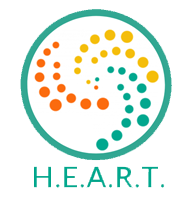Growth, graduation, and helping students get into recovery
11 October, 2022
A new academic year means new faces, opportunities, and challenges for students all over the UK. And for Adam Petson, Students in Recovery Lead for Recovery Connections, it means more students who may need to access specialist support over the next academic year.
Right now I’m at the beginning of a Masters in Trauma-Informed Psychology, although I had to wait slightly longer than expected to officially graduate from my BSc in Psychology & Counselling. Unfortunately, my dissertation failed by 5%, so I didn’t graduate this summer with the rest of my cohort. Naturally, this was and is disappointing, but as with life there’s nothing that’s not without its setbacks and frustrations.
I was two years sober when I began studying for the degree. Three more years on and I’ve learned that such unexpectedly frustrating events can be doubly hard for people in recovery. But, with the right support and guidance we do learn, and create the tools we need to manage and regulate ourselves productively. Doing so makes the day-to-day difficulties of life simpler to deal with in an effective, self-caring way.
And away from the lecture halls and seminars, that’s what I help people to do in my work. Employed by Recovery Connections, I work between our Middlesbrough community building, supporting people affected by alcohol and substance use, while I also work for the charity at Teesside University, where I study.
For the last couple of years I’ve been coordinating an on campus service that’s similar in design to the successful Collegiate Recovery Programmes (CRPs), developed in the United States. For me, it’s a platform where students from all walks of life can come for support, regardless of their addiction. Whether it’s drugs or alcohol, gambling, sex - if it’s having a negative impact on the student’s wellbeing, they’re welcome to join a weekly meeting or speak to me in confidence. My phone is always on.
More than that though, the students also come to understand how to support one another too. They learn to manage a perceived addiction effectively, while dealing with all the other unique stressors that university can throw at you (like delayed graduations, for example!). It’s a place where students can feel safe, and come to understand the way their mind works from the point of view of addiction and recovery.
And if they are having problems, then it’s also some much needed solace for them. Knowing you’re not alone with an addiction is priceless, and isolation can feel so overwhelming. So by building a sense of community directly on campus, any student has a space to go and be someone who maybe they can’t be around their fellow students, without the fear of judgement from others.
But while progress is certainly being made on this, there remains a stigma surrounding addiction. Although I do see how the younger generation are working to improve this. In fact, if you look at the way addiction and recovery are perceived by young people, there’s been a significant shift in a positive direction over the last few years.
We’re fortunate to live in such an inclusive time, where from an early age children are educated to understand that we need to accept people for who they are. And while there are plenty of older people with this progressive mindset out there, it does feel harder to shift stigma in certain circles. So in somewhere like a university, for instance, you’ve got younger people with more positive attitudes, and older academics and management with old-fashioned views. You would hope that the more positive outcomes we create, the stronger this shift from fear, to compassion, will become.
When I think about this, my mind turns to one student I’ve met in my work in particular. If I’m being brutally honest, there was a time when I wouldn’t have been surprised to receive a phonecall to say that this person had passed away. Due to the nature of their addiction, and the dangerous situations they were putting themselves in, it could have turned out badly for them.
But as it turns out, this person is still working with me at the university, and has been with me from the start. They’ve had moments when things were great, and other periods of relapse. But, with the support of the group, and being able to speak to me, they have still progressed, finished their degree, and will also shortly begin their master’s. This person has also said that without the support of the group, and Recovery Connections, they don’t believe they would have finished the course.
This is just one example of the positive outcomes the group has created. And why it’s important that students from beyond Teesside can reach out for support, via Student Space. Putting this all together has been a slow-burning, organic process, and we just have to be patient and keep putting in the work. For as much as I want everyone to sing from the rooftops how brilliant it is to be in recovery, and see every university become recovery-friendly, we’re not in that position quite yet.
But we are making progress. I’ve watched this movement grow over the past few years, and things are changing. We are getting there, together, and as another academic year begins, I’m delighted with what I’m seeing.
Recovery Connections is a lived experience recovery organisation specialising in peer-led substance use recovery. The charity offers several different forms of support for students who wish to learn more. Visit their page on our website, here.
